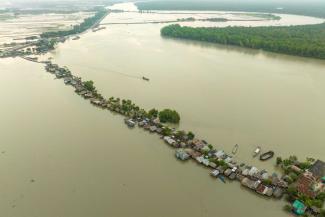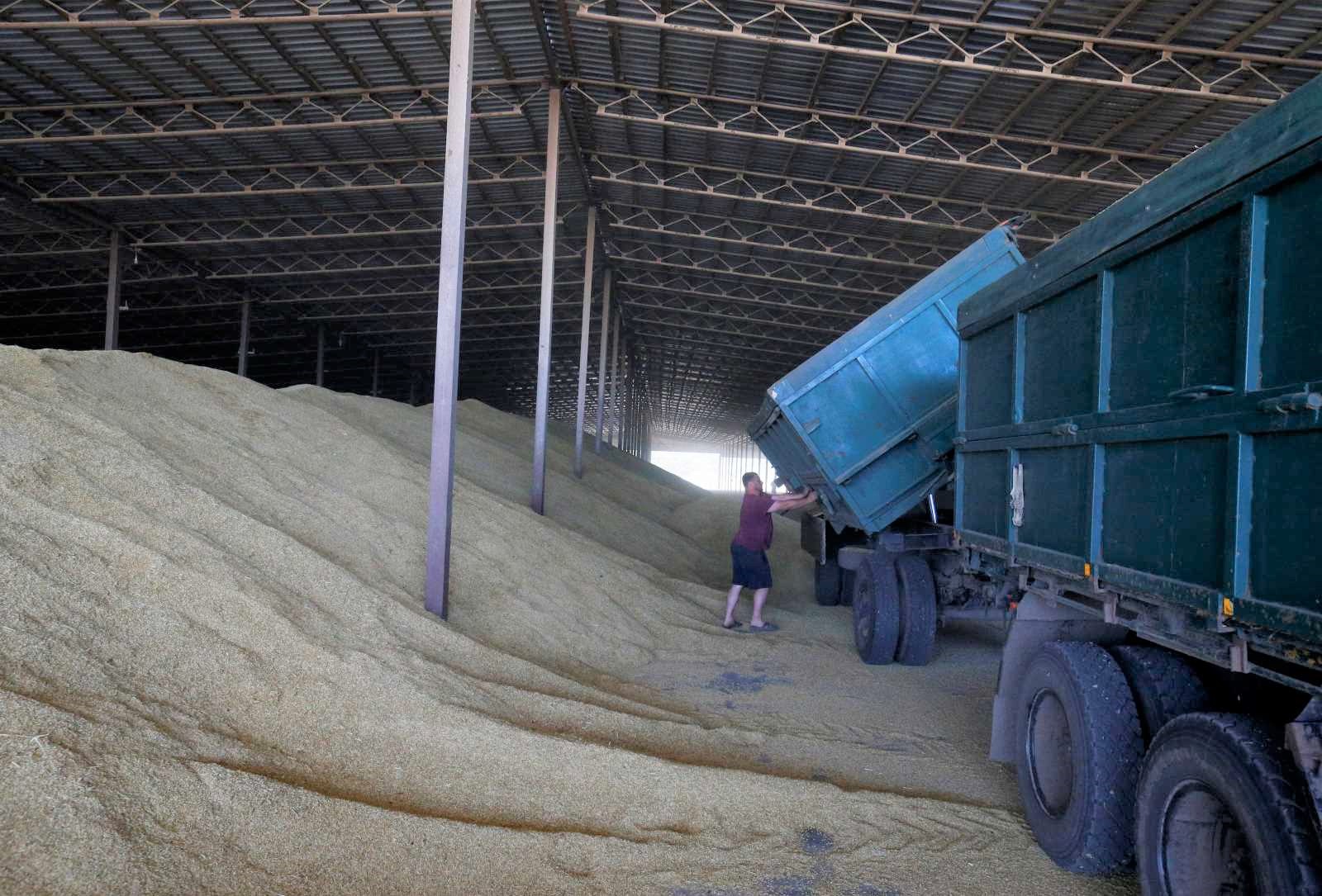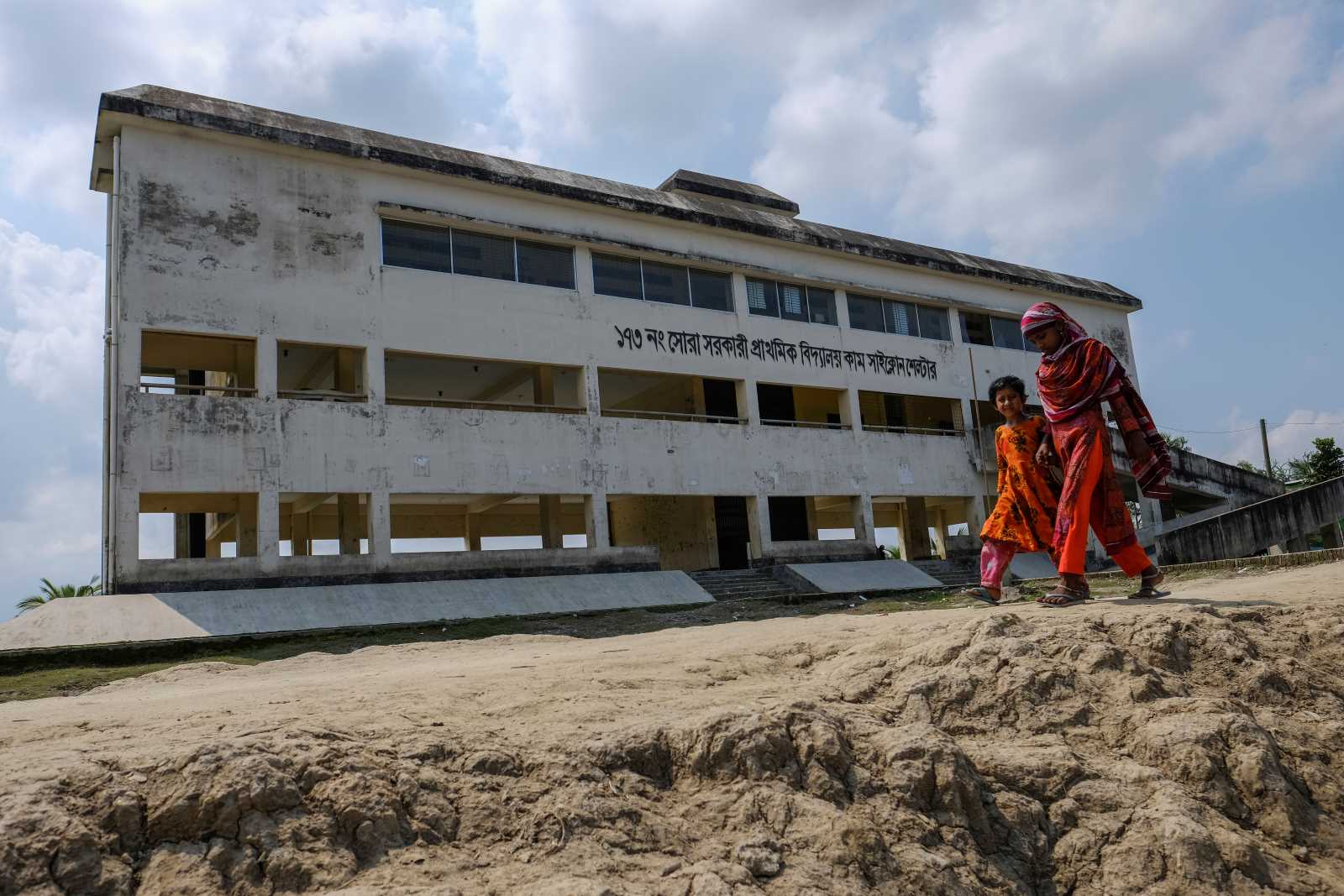Global Governance
In Sharm el-Sheikh, loss and damage must be on the agenda

The worst recent incident was the devastating flooding in Pakistan. For good reason, Antonio Guterres spoke of “climate carnage” when he visited the country. People suffered due to pollution they did not cause (see Imran Mukhtar on www.dandc.eu).
Scientists can show how such events are linked to human-induced global warming. Pakistan’s government now insists that compensations for loss and damage must be on the agenda of the UN Climate Conference in Egypt that starts today. Pakistan currently chairs the group of all developing countries at the UN Framework Convention on Climate Change (UNFCCC).
Last year, at COP26 in Glasgow, developing countries had proposed to set up a Finance Facility for Loss and Damage (FFLD). The developed countries rejected it. Instead, the Glasgow Dialogue on Finance for Loss and Damage was launched, which would carry on for three years before delivering any tangible results (see my contribution on www.dandc.eu).
Vulnerable countries cannot afford to lose so much time. For progress to be made faster, all countries must adopt Pakistan’s loss-and-damage item at the beginning of the summit in Sharm el-Sheikh. Should one or more high-income countries block that decision, the developing countries should simply declare the COP dead before it even begins.
An urgent matter
To understand the urgency, consider the example of Bangladesh. Ian Fry, the UN’s special rapporteur on climate change and human rights, recently came here. He clearly stated that polluters have caused global heating, and that the impacts are causing serious suffering in our low-lying delta country. Victims must be compensated.
The World Bank recently published a similar analysis. It estimates that, in Bangladesh’s coastal areas, losses will amount to an annual $ 570 million, unless measures are taken to minimise the impacts fast. The report points out, for example, that the rise of the sea-level is increasingly leading to the salinisation of surface water – with serious implications for both agriculture and availability of drinking water. Moreover, the risks of flooding and cyclones are growing.
To control these risks, investments in infrastructure are needed. The government of Bangladesh has already taken action accordingly. Several things are obvious nonetheless. The slowly escalating climate emergency will cause significant losses and damages in the years to come, even with successful adaptation technologies and measures.
As stated above, High-income countries have been dragging their feet in regard to the loss and damage topic. However, the subnational governments of Scotland, Wallonia and other places have taken commendable steps to tackle the matter. More recently, Denmark became the first sovereign high-income country to join them, hopefully setting a new promising trend. At the same time, the finance ministers of the Climate Vulnerable Forum (CVF) have set up a loss and damage finance facility of their own. It is designed to fast-track funding to communities who are already suffering. The CVF countries have provided some of the funding themselves and received donations from philanthropic foundations.
Good news regarding adaptation funding
The good news, however, is that the developed countries have agreed to double their funding on climate-change adaptation in developing countries. For vulnerable nations, the challenge is to make good use of the money. Typical problems include corruption and unnecessary expenditures due to overrunning project times and budgets.
More generally speaking, it is time to confront the fossil-fuel companies who are the real criminals behind the climate crisis. They have knowingly caused harm for the sake of profits. They also spent decades spreading lies to deny climate change and lobbying politicians in polluting countries. They are the reason we are facing this crisis. Both governments and fossil-fuel companies must be held to account accordingly.
Link
World Bank, 2022: Continued investment in coastal resilience is critical for sustainable growth in Bangladesh.
https://www.worldbank.org/en/news/press-release/2022/09/11/world-bank-continued-investment-in-coastal-resilience-is-critical-for-sustainable-growth-in-bangladesh
Saleemul Huq is the director of the International Centre for Climate Change and Development (ICCCAD) at Independent University, Bangladesh (IUB) in Dhaka.
saleemul.huq@icccad.org
http://www.icccad.net/











